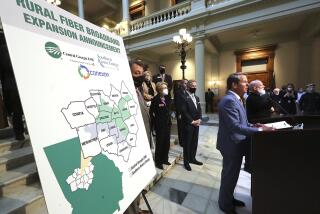Uniform State Taxes Offer Shared Relief
State government finances are a national crisis. The federal government should help, but not by sending money. The states need some common taxes, collected centrally and shared on a formula basis. Common shared taxes tw would strengthen state revenue systems and simplify life for taxpayers, especially business taxpayers.
State governments across the country are battling huge deficits by cutting services, laying off workers, reducing benefits and increasing a hodgepodge of taxes and fees. Part of the problem is a temporary result of the recession. As the economy recovers, revenues will pick up--especially at the new, higher tax rates--and state and local budgeteers will breathe easier. But, not much easier. Fiscal stress at the state and local levels will probably remain high.
Crime, violence, AIDS, drug addiction, homelessness and the health costs of the uninsured are putting pressure on state and local budgets. Moreover, arguments for improving state and local services are no longer coming just from bleeding heart do-gooders concerned about the poor. Increasingly, the business community is calling for drastic improvement in the effectiveness of schools and training programs, better and more widely available child care, modernization of roads, bridges, airports and public transportation, upgrading of water systems and waste treatment.
A consensus is emerging that revitalizing the American economy and improving the quality of American life requires increased public investment, especially investment in people.
Where will the resources come from? The traditional liberal response has been to call for federal grants to state and local governments for specific purposes--housing for the homeless, education for disadvantaged children, treatment for addicts, training for law enforcement officers--usually with detailed regulations written in Washington.
In the past decade, however, the flow of grant money from the federal government to states and localities has declined, making the state and local fiscal crisis worse. No reversal is in sight. The federal government remains paralyzed by its own persistent budget deficit. Moreover, faith that the federal government knows how to design programs that will prove effective at the grass-roots level has eroded to the vanishing point. The federal government is good at solving problems that demand a uniform national system, such as the Social Security system. It has no advantage--and many liabilities--when diverse local situations require imagination, flexibility, citizen involvement and strong on-the-scene leadership.
Schools will not improve because someone in Washington says they ought to and drafts guidelines for a federal school improvement program. Streets will not be safer because a crime czar in Washington issues directives. The problems that concern most citizens these days demand bottom-up, not top-down solutions. Moreover, the top has neither the resources nor the will to take the lead.
An alternative to the federal grant approach is using the powers of the federal government to strengthen state revenue systems and, hence, the ability of states to assist their local communities. The federal government could collect on behalf of the states one or more common taxes to be shared by the states on a formula basis, not spent by Washington.
The idea of common shared taxes is radical in the American federal system, where the tradition has been that each state must go it alone in raising tax revenue. In Germany, however, the central government collects most of the taxes and shares the proceeds with the Laender (states). German taxpayers, individual and corporate, fill out only one income tax return, for federal and state taxes. German firms pay a value-added tax whose proceeds are shared between the federal government and the states, with disproportionate shares going to the least affluent states to help equalize services.
As the U.S. economy becomes more national and international, the case for more uniformity in state taxation increases. People and capital are more mobile than they used to be. The economy is increasingly dominated by large national and international firms and by service industries. Many services--legal, accounting, advertising, data processing, finance, catalogue sales--can be performed at a substantial distance from the customer.
One consequence of mobility is that states are having more difficulty raising revenue because they must worry about people, sales and businesses migrating to lower tax jurisdictions. In the middle of California’s recent budget crisis, Gov. Pete Wilson said he would veto any tax increases that “chase jobs out of California.” Florida and Massachusetts recently extended their sales taxes to services, then retreated as lawyers, accountants and advertising firms threatened to move out of state.
Another consequence is that more companies (and some individuals) pay taxes to several states as well as the federal government. Multistate companies spend a lot of legal and accounting hours complying with multiple tax laws and trying to minimize their tax liabilities. States devote a lot of resources to collecting what they believe multistate corporations owe.
One possibility is a uniform corporate income tax, centrally collected and distributed to the states on a formula basis. Another is a uniform state sales tax, which would make it harder for cross-border transactions to escape taxation. Replacing state sales taxes with a uniform value-added tax would have the additional advantage of facilitating equal taxation of goods and services without double counting.
Some variation should remain. States that want to pay additional taxes for a higher level of services should certainly be able to do so. But increasing uniformity in taxes paid by businesses would save hassles for taxpayers and collectors alike and ease the state financial crisis.
One can argue that common shared taxes would reduce state autonomy. However, federal grants also reduce state autonomy. So does the lack of resources to improve public services.
More to Read
Get the L.A. Times Politics newsletter
Deeply reported insights into legislation, politics and policy from Sacramento, Washington and beyond. In your inbox three times per week.
You may occasionally receive promotional content from the Los Angeles Times.










